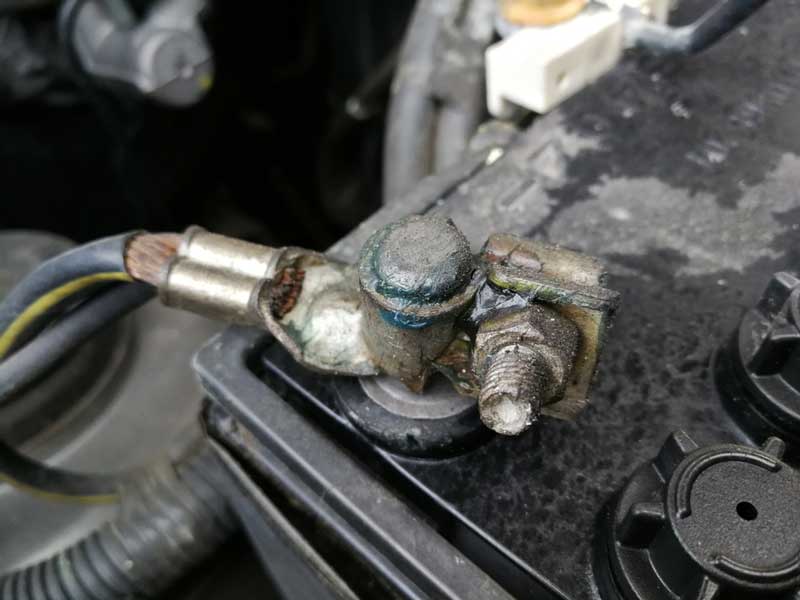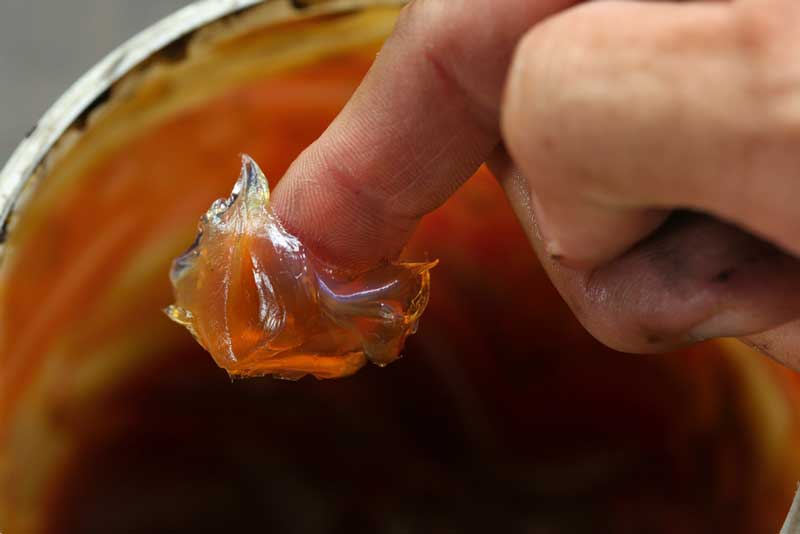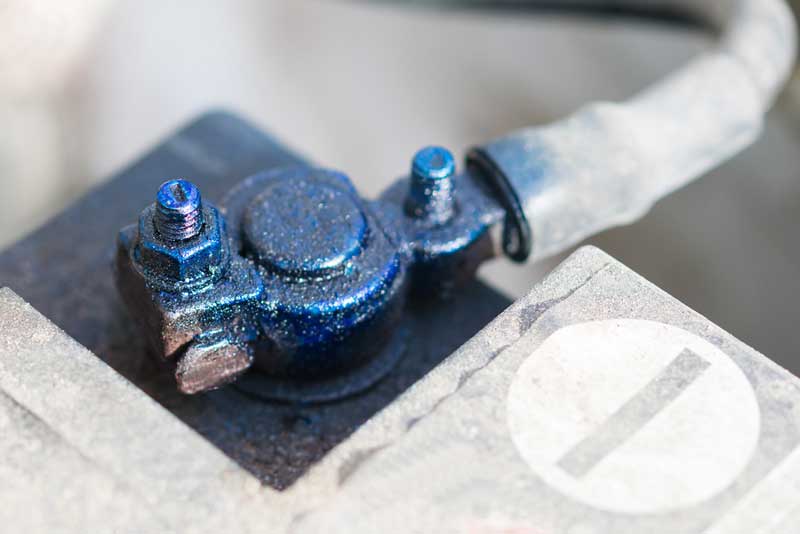What is dielectric grease? What is the difference between dielectric grease and other kinds of grease? Does dielectric grease differ from silicone grease?
These are some regular questions that come up with the topic of dielectric grease. We have compiled all you need to know in this piece.
Dielectric grease is also referred to as turn-up grease. It is a non-conductive and silicone-based grease that guides against corrosion, dirt, and moisture on the electrical connectors. It upsets the flow of electric currents, making it perfect for lubricating and sealing rubber components of the electric connectors.
More will be discussed on dielectric fluids, dielectric grease types, how it’s used, the difference from regular greases, and their application.
Let’s get started!
What is Dielectric Grease?
Sometimes referred to as tune-up grease, Dielectric Grease is a viscous insulative water-resistant substance used to protect electrical connections from dirt and corrosion.
It is utilized to keep off the water, dirt, and many other substances from electrical connections. This grease is used for many purposes, including recreational car wiring, electrical work at home, and automotive turn-up. Dielectric grease is equally suitable for outdoor and marine applications since it doesn’t dissolve in most liquids.
This grease can be utilized for lubricating spark plug wires, the rubber components of electrical connectors, and equally to protect against corrosion on electrical connections, on your recreational vehicles or boat.
Dielectric grease is a silicone grease, that is not supposed to be used on plastic or silicone-based rubbers, because it will, over time, break them down. In addition, the dielectric grease is not a conductor of electricity, hence, a direct application on the electrical connections’ mating surfaces (sockets and pins), should be avoided.
Also Read: How to Tell if a Relay Is Bad (Expert Guide)
What Does a Dielectric Grease Consist of?
The dielectric grease most frequently consists of a thickener and silicone base. It usually possesses a milky color, or a little translucent grayish color: a Permatex dielectric grease Jadi silicone dioxide and polydimethylsiloxane.
What Purpose Does a Dielectric Grease Serve?
Dielectric grease is responsible for protecting electric circuits, mainly at connection points where problems could occur, due to vulnerabilities. For instance, silicone-based grease acts as the protector, where points of connection in the electrical circuit get pruned to corrosion or exposed to debris. Equally, it maintains current flowing continuously and evenly and keeps dry since the grease is moisture-resistant.
The material possesses a very high melting point, related to petroleum-based lubricating oils. This factor gives the capacity to resist intense heat situations and aids in preventing materials from fusing by arcing electrical sparks. Dielectric grease equally subdues oxidation layer development, which can develop on the rubber connectors, and prevent the flow of electricity at connection points.
Dielectric grease is vital when it comes to voltage leak prevention mainly, mostly in high voltage systems. By maintaining connections free of corrosion and dirt, dielectric grease aids in maintaining closed electrical flow systems. This ability avoids waste and leads to the increased operational efficiency of the systems, which depend on a vast volume of voltage for operation.
It helps prevent fires in homes and vehicles that emanate from electrical systems, from a more rapid spread because it is a fire retardant. Also, dielectric grease is great plastic and rubber lubricant. When the substance is applied properly, it lengthens the lifespan of plastic and rubber connectors and parts, by aiding in keeping them supple, insulated, clean, and not brittle.
A tight, clean electrical connection resulting from dielectric grease, properly helps avoid a host of electrical issues. For instance, intermittent electrical connections, which cause overheating, are a very common issue that the dielectric grease, due to its protective qualities, could help minimize together with power loss and sparking.

Dielectric Against Regular Grease
Regular greases are one major substitute for dielectric grease. However, dielectric grease is very distinct from regular grease, and it’s used for its physical properties. Most regular grease gets weak and dissolves, then, it is utilized during high-temperature operations.
This is a result of the fact that they are produced with low melting points. On the contrary, dielectric grease possesses melting points that are very high and could be utilized on surfaces with extreme temperatures.
Cost is another factor, which makes regular grease quite different from dielectric grease. Dielectric grease costs more, in comparison to the other grease types. But the cost is worth it because of its advantages. Dielectric grease, unlike others, does not melt down in liquids like methanol, mineral oil, ethanol, and water. Therefore, this makes it perfect for both marine and outdoor applications.
The dielectric grease lubrication effect is more in comparison to other types of grease. Lastly, some of these regular greases are electrical conductors, while the dielectric grease does not conduct electricity. Therefore, in addition to lubrication and corrosion prevention, dielectric grease prevents arcing and fusing in electric connections and terminals.
How to Apply Dielectric Grease
The dielectric grease need not be erroneously seen as a petroleum-based lubricating oil. These two are very different and fashioned for completely different purposes. The lubrication of metal parts is not what the dielectric grease does. Rather, its job is the insulation and protection of electrical contacts. Also, it can be used for lubrication, but it is primarily for rubber and plastic parts, especially when the parts have contact with metal.
Applying dielectric grease on thin layers is crucial. The grease works optimally if it is used sparingly and efficiently. The outer part of any exposed electrical connection, such as battery terminals, should be covered with a thin layer of dielectric grease. This could be done by putting a small quantity and then spreading out the substance evenly and as thinly as possible.
Properly applying the substance to the outer electrical connection could lead to improved circuit performance. Hence, this great substance can be of immense benefit to a lot of everyday items.
Furthermore, the appropriate usage of the substance on items such as relays, bulbs, battery terminals, sockets, spark plugs, and any other electrical connection could increase the reliability and lifespan, of a host of other household automotive systems and devices.
The usage of dielectric grease has been made easier than before, by manufacturers in many other applications, by manufacturing the grease in many different forms. The dielectric grease can now touch areas that were difficult to reach, with the aid of a liquid that is sprayable. The use of grease in specialty applications normally needs a professional with the right expertise to get the most benefit.
When to Apply Dielectric Grease
The Dielectric Grease serves as lubricating oil, an insulator, a protectant, and a sealant when used lightly in the following applications.
- The boots of spark plug
- Battery terminals
- Trailer connectors
- Bulb sockets
- General rubber or plastic lubrication
- General other electrical connections.
Pros of Dielectric Grease
- Protects against grime and dirt
- Aids in preventing voltage leakage
- Guard against and avoid water damage
- Aid in the insulation of electric connection when faced with frigid conditions
- Guard against corrosion
- Prevention of heat damage
- Prevention of electrical overheating
- Prevention of material bonding.
Dielectric grease possesses many advantages, most especially when it is used properly. One of the major advantages is the provision of seals on metal surfaces.
When the substance is applied to the electrical systems’ metal parts, it protects these parts from corrosion and rusting. The grease can prevail against high temperatures; hence the seal will be maintained up to 500 degrees Fahrenheit, which is the maximum.
Another advantage the dielectric grease possesses is that it protects rubbers and plastics of the computer chips or electrical systems, against fire. In addition, the grease helps in the reduction of wear of connecting surfaces, and mating. Therefore, these connecting surfaces develop a layer of coating, that prevents oxidation and minimizes resistance.
The substance equally helps in the electrical system’s insulation and prevents the insulative oxide layer which increases resistance and signal loss, from building up. The silicone-based grease is very crucial for a multi-pin connector, which results in the elimination of all shorts existing between these pins. Also, it helps in the lubrication of engine components like rotors, speedometer cables, and distributor caps.
Also Read: Car Overheats When AC Is On (Causes & Fix)
Cons of Dielectric Grease
- Even though grease is very beneficial, an incorrect application can make it very detrimental. The dielectric grease being non-conductive can lead to the prevention of current flow, if used incorrectly. If the contact points of the conductor are not cleaned after the grease has been applied, then there will be no way for the current to pass through.
- One more disadvantage the substance can cause is the melting of silicone rubber after using it for years. Therefore, one should avoid using dielectric grease, on silicone rubber encased conductors. You must put on safety glasses and gloves when using the dielectric grease. The substance can irritate your skin and eyes.
- The dielectric grease generates formaldehyde when used at a high temperature, which could irritate the eyes and respiratory system. Therefore, one needs to consider the temperature he will be using the grease under, at all times before applying the grease.

Does Dielectric Grease Conduct?
The dielectric grease serves as an insulator. One of its basic uses is to prevent the fusing and arcing of metal that transmits high voltage. The grease’s high melting point is the reason why it is ideally appropriate for this kind of application, under high temperatures.
When the grease is being applied, it is important not to forget that the grease does not conduct an electrical current. And as such, there will be a blockage of electrical current, if applied to contact points. These contact points could get together, and remove a small quantity of the grease. Still, it is ideal to thoroughly get rid of dielectric grease, in areas where metallic contact points come into contact.
Incorrect usage of the dielectric grease is mostly caused by misinformation. When it is misused, it could interrupt the flow of electric current, and cause systems and devices to malfunction. And as such, label directions come in very handy here when using the grease, and consulting with a certified professional is recommended, if one is inexperienced or unsure.
The substance belongs on the outer parts of connectors. Being a non-conductor will be of benefit greatly, by avoiding voltage leakage in high-voltage circuits like automobile spark plugs. Dielectric grease equally protects and lubricates the plastic plugs, rubber covers, and some other pieces that are non-conductive, which transmit signals and electric power where they are needed to go.
While grease does not conduct electricity, it serves as an important helper that maintains the flow of current in the electrical circuits, especially in harsh environments. Also, by getting the connections sealed and protecting them against debris and corrosion, the dielectric grease ensures the electrical points of contact remain functional.
Also Read: What is a Powertrain Warranty (Everything to Know)
Frequently Asked Questions – What is Dielectric Grease?
Is dielectric Grease just Vaseline?
Dielectric grease is a translucent substance, used primarily to protect and seal electrical conductors from dirt, dust, sand, or other foreign substances. On the contrary, Vaseline is a word that is used to mean petroleum jelly.
Does dielectric grease improve connection?
The answer is no, as the grease is a non-conductor, it cannot improve electric connection.
What’s the difference between dielectric grease and regular grease?
These regular greases stick appropriately to metal even under extreme temperatures, which provides another protection and offers a longer bearing life. On the contrary, dielectric grease is a waterproof substance that keeps moisture away from a connection. Moreover, since it is not a conductor, it prevents the electrical current flow.
Is silicone grease the same as dielectric grease?
Silicone grease, which at times is referred to as dielectric grease, is a waterproof substance made by adding silicone oil to a thickener. This thickener is mostly amorphous fumed silica, and this silicone oil is a polydimethylsiloxane (PDMS).
What should I put dielectric grease on?
The dielectric grease, most time, is used on battery terminals for the prevention of corrosion and fusing, in addition to ignition systems of high-energy to avoid voltage leak, however, this can equally be utilized in partnership with various other connectors and terminals, like but connectors, spade, heat shrink, and ring terminals.
Can dielectric grease cause problems?
The answer is no; it can’t. If anything, the grease will aid in preventing shorts when used.
Should I use dielectric grease on the grounds?
This will also work effectively in helping a ground connection positioned on a frame. Next, one should grind this frame to blank metal; on the place where the ground is, apply a small amount of dielectric grease and then secure the ground. Next, one should clean the leftover grease and use undercoating to spray over the item.
Conclusion – What is Dielectric Grease?
At this point, we are very confident that you know what dielectric grease is, its application, its use, and its pros and cons. The grease is a very good lubricant and sealer. It ensures longevity, prevents arcing, and adds insulation to electrical connectors.
Do not forget that dielectric grease, needs to be used on surfaces that do not conduct current, as it will prevent current from flowing between electrical connections. This grease is ideal for motor industries, electrical circuits, and automobile applications. It possesses a high melting point and, as such, is the ideal grease for usage in high-temperature applications.

